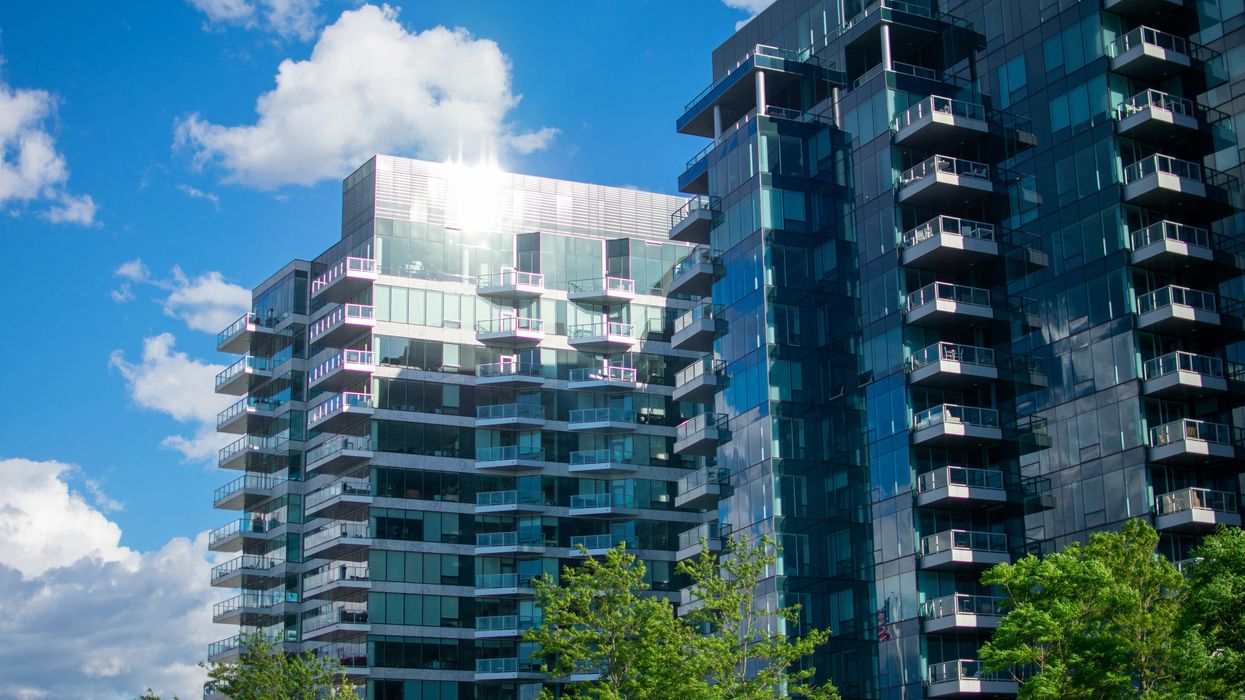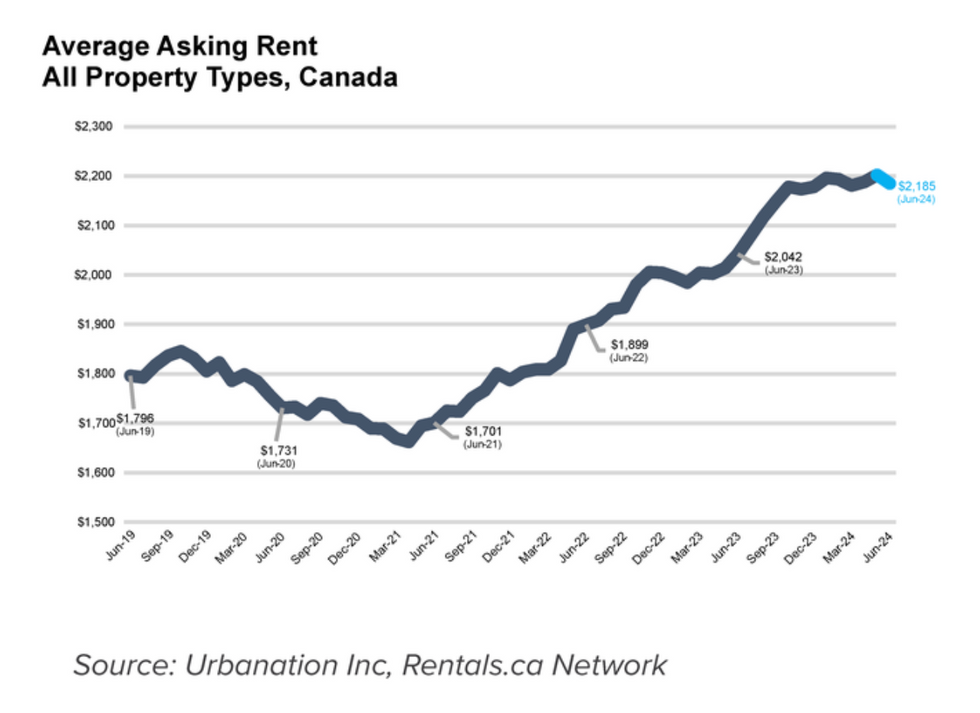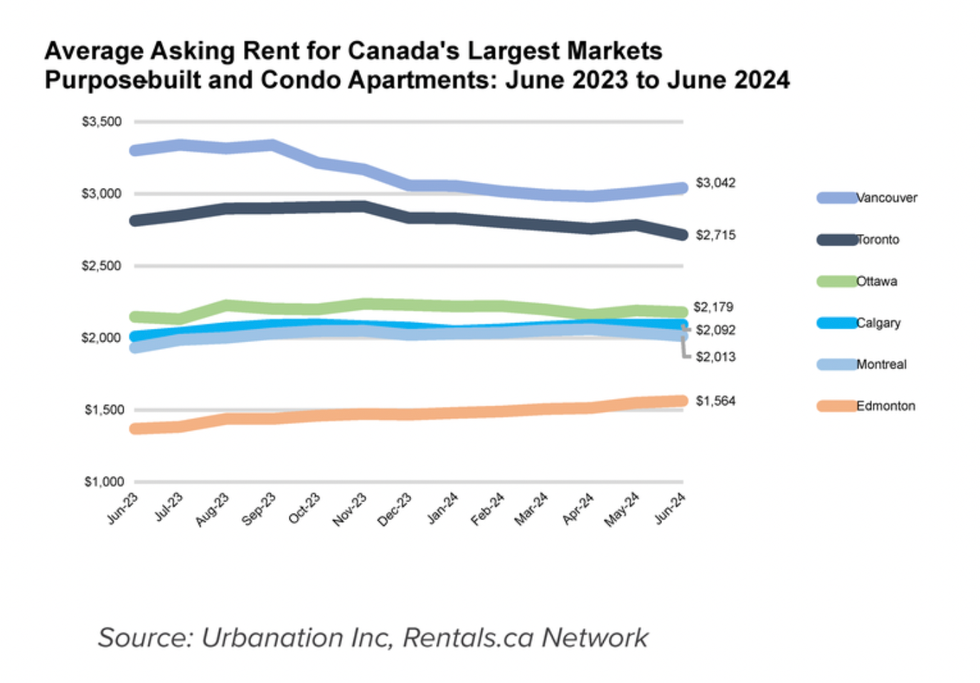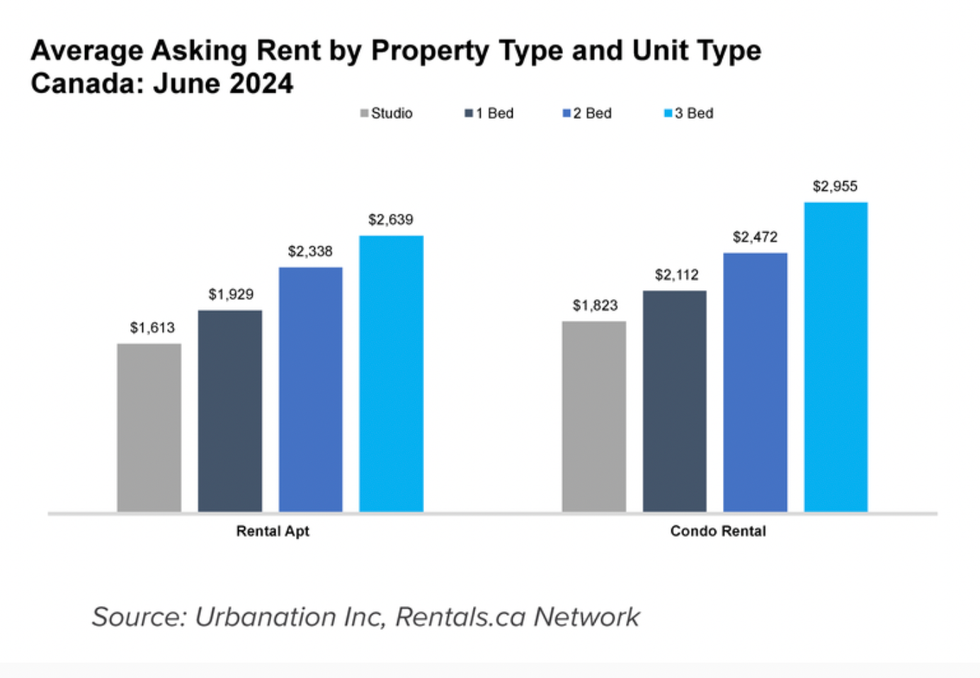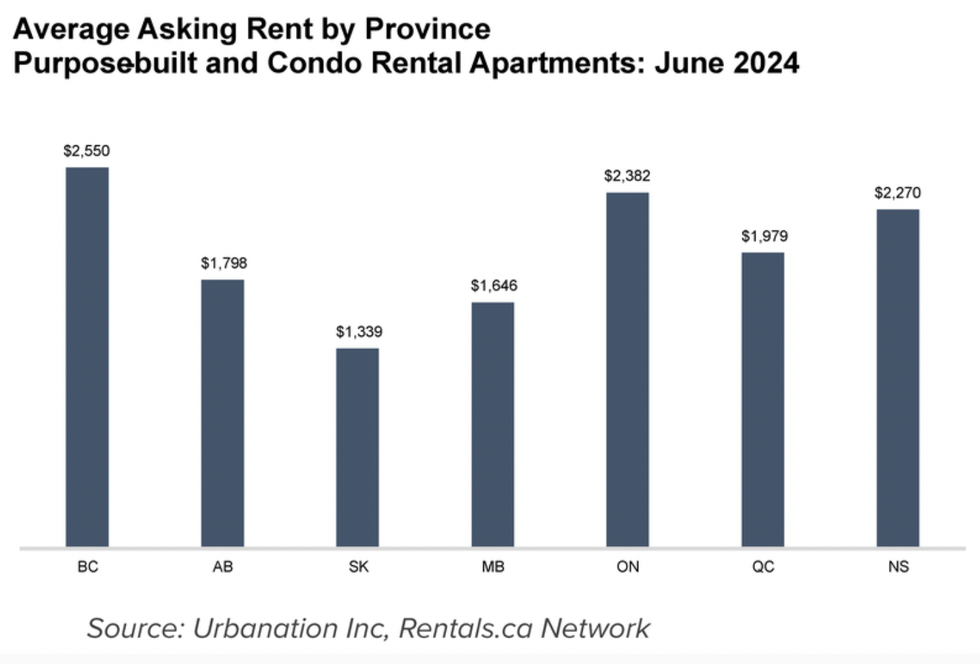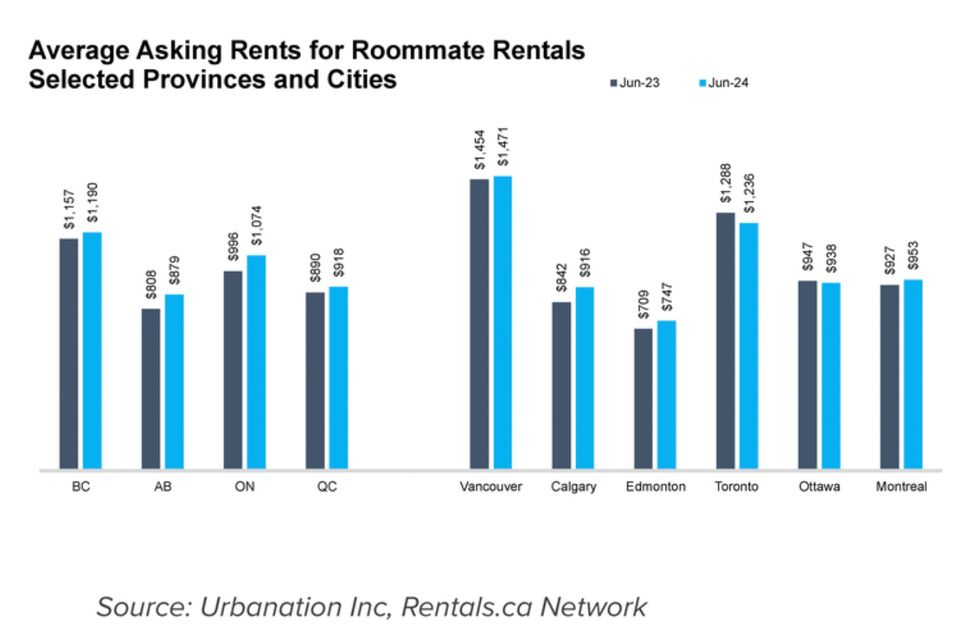Average residential asking rents are still inflated compared to last June, but before you apply to that third job or make a hasty crypto investment, you should know that this months’ growth was the slowest in 13 months.
According to the June National Rent Report from Rentals.ca and Urbanation, average asking rents for all residential property types increased 7.0% from last June, landing us at $2,185 average per month. Though, on a month-over-month basis, average asking rents ticked down 0.8% from May's record-breaking $2,200 a month.
This decrease also represents the largest decline since early 2021 (during the COVID-19 pandemic), and it defies the typical summer trend of rising rents.
Rental Market “Levelling Out”
In his analysis of Tuesday’s data, Urbanation President Shaun Hildebrand noted that markets are showing signs of settling. “Rents at the national level are clearly levelling out,” he says. “At this stage of the market, strong rent increases are mainly limited to inexpensive cities, particularly in the Canadian Prairies, while larger markets dealing with severe affordability issues are seeing rents slow or fall.”
In more good news, rents for purpose-built and condominium rental apartments fell by an even more substantial 1.0% in June, averaging $2,146, and Toronto rents fell to a 22-month low, with average rents for purpose-built and condominium units declining by 2.5% monthly. Out on the Wet Coast, however, rents inched up 1.1% month-over-month in Vancouver, but were down 7.8% annually in June to an average of $3,042.
The biggest annual increases for purpose-built and condominium units were seen in Edmonton, Calgary, Montreal, and Ottawa, where rents ticked up 14.3% to $1,564, 4.2% to $2,092, 4.3% to $2,013, and 1.5% to $2,179, respectively.
For the rental type breakdown: purpose-built and condominium rental apartments saw a drop of 1.0% in June from the previous month, averaging $2,146. Compared to this time last year, apartment rents grew by 9.0%, driven by an 11.0% increase in purpose-built rental rates, which now average $2,121. Condominium apartment rents rose 2.6%, now sitting at $2,320, and studio condo rents fell by by 5.1% annually to $1,823. Lastly, purpose-built studio rents jumped up 14.6% to $1,613 from last June.
Across unit types, studio rent declined 5.1% annually in June to an average of $1,823, and larger unit types saw an annual rent increase with three-bedroom units rising by 8.0%.
In provincial analysis, Ontario comes out on the bottom for year-over-year rent increases — or the top, depending on how you look at it. Month-over-month, Ontario's average asking rents fell 1.7%, bringing the year-over-year down 1.3% to $2,382. Quebec experienced a month-over-month decline of 1.0%, but recorded a 5.1% annual increase, landing it at $1,979.
Everywhere else, average rents increased, with Saskatchewan leading the charge for the third month in a row with a 22.1% increase for purpose-built and condominium apartments. Still, the prairie province remains 38% below the national average at $1,339.
Now for the roomies: asking rents for shared accommodations increased 7.5% annually across BC, Alberta, Ontario, and Quebec, reaching an average of $989. But on a month-over-month basis, average roommate asking rents declined for the fourth straight month, down 0.3% from May and 2.1% since March.
In Toronto, shared rents dropped 1.7% month over month and 4.0% annually to $1,236 this June, down from last month's $1,257, while Ottawa's roommate rent dropped 1.0% to an average of $938. In all other major cities, shared rents increased, with Vancouver taking the prize at $1,471, up 1.2% annually.
